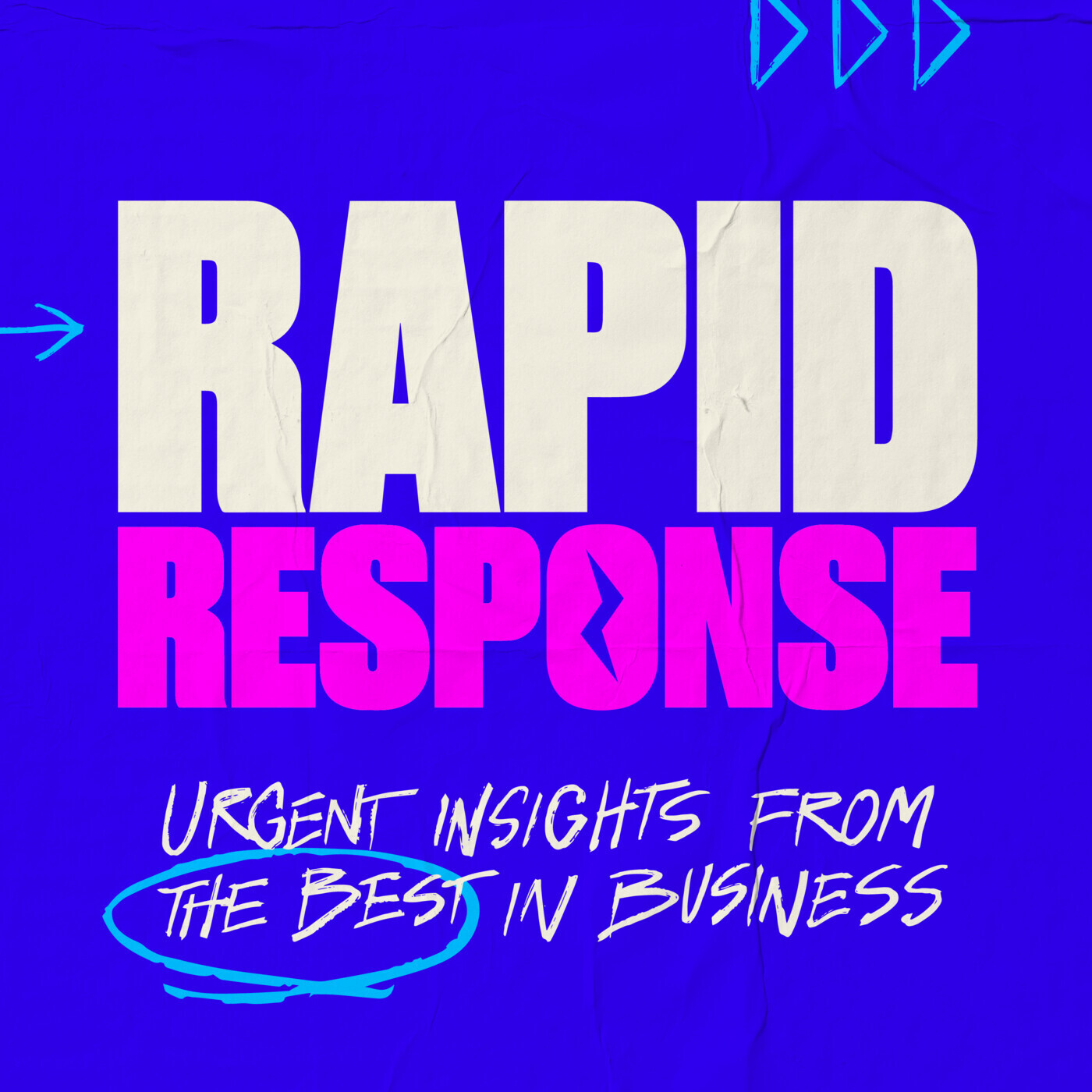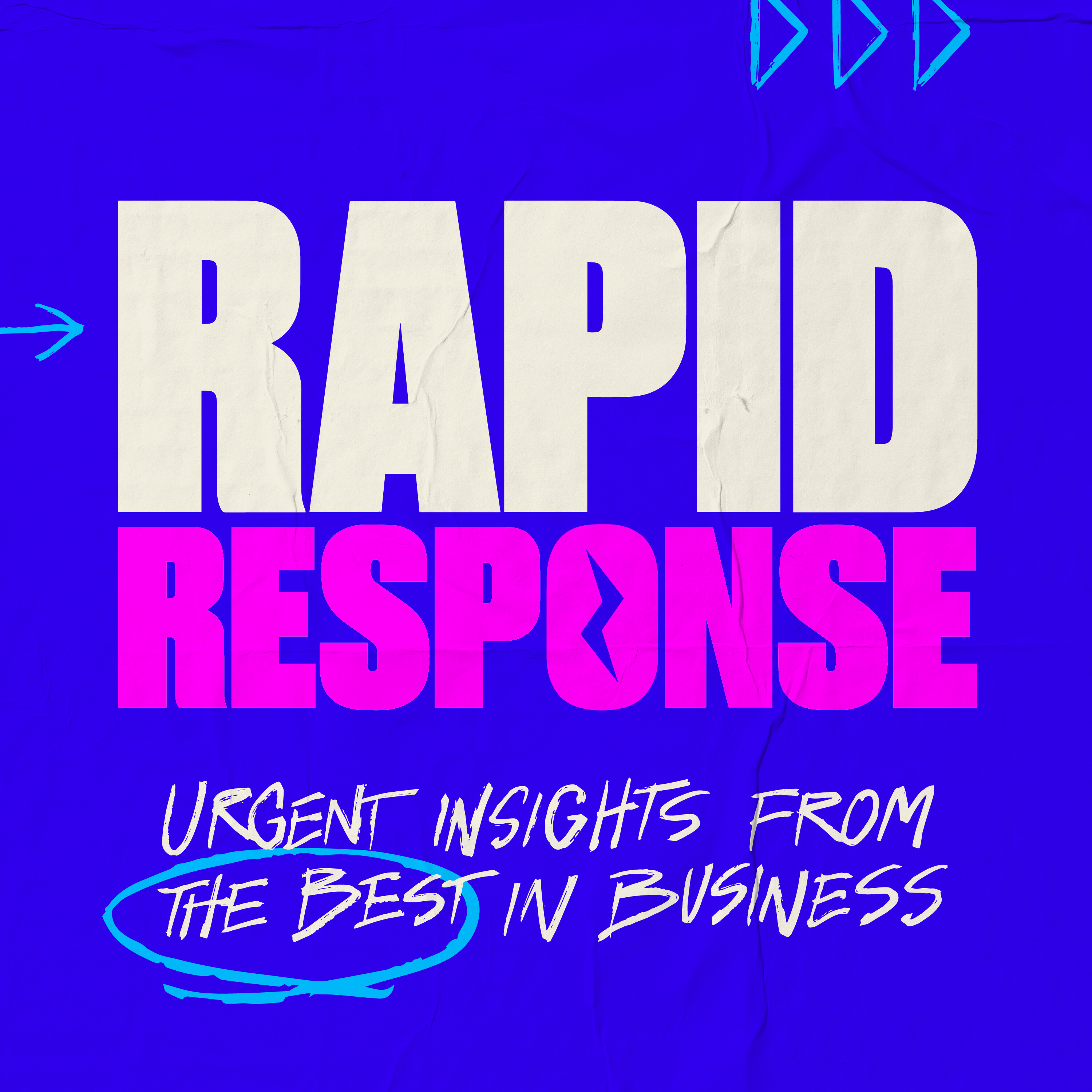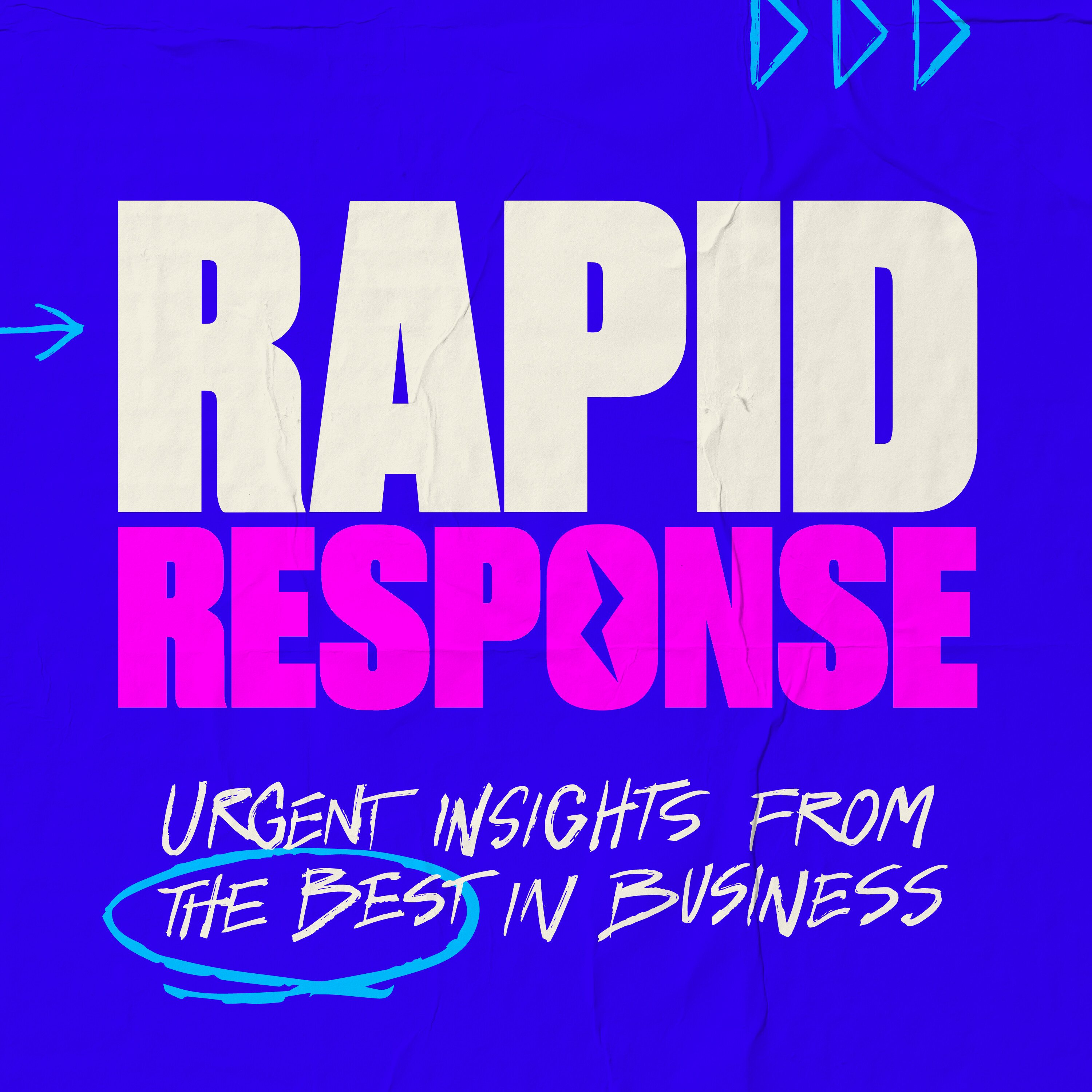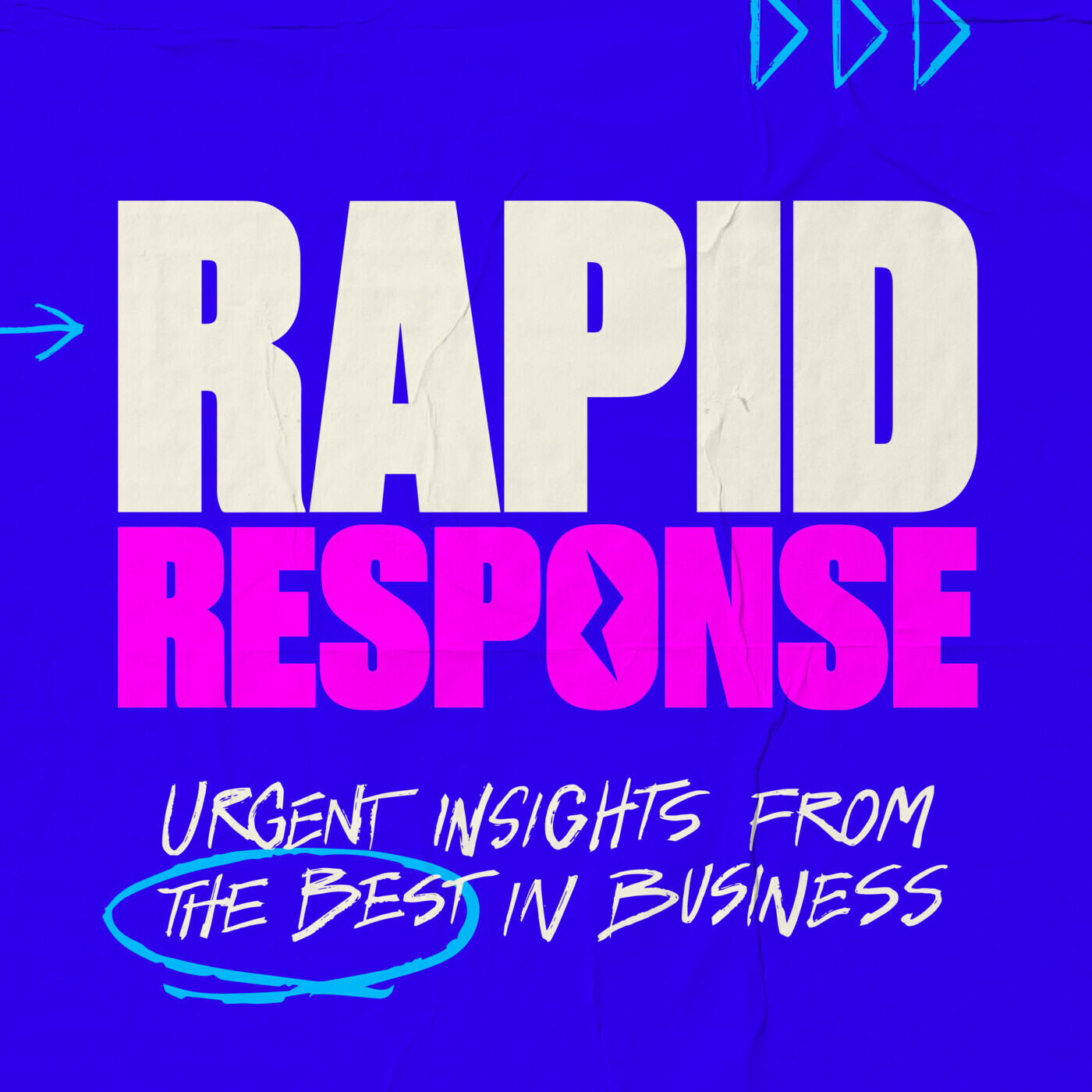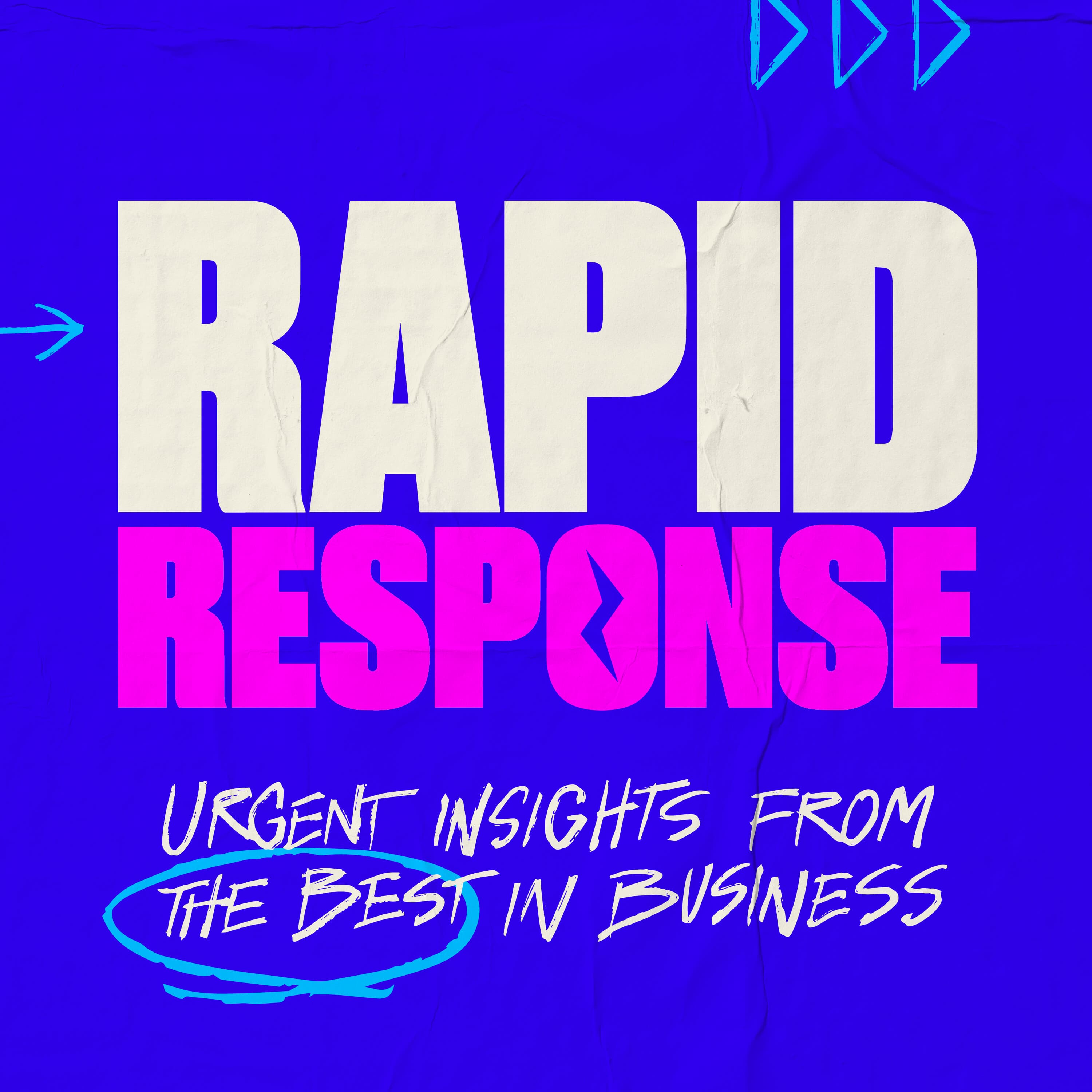
August 27, 2024 • 23min
Rapid Response: How Campus won over Sam Altman & Shaq, with founder Tade Oyerinde
Masters of Scale
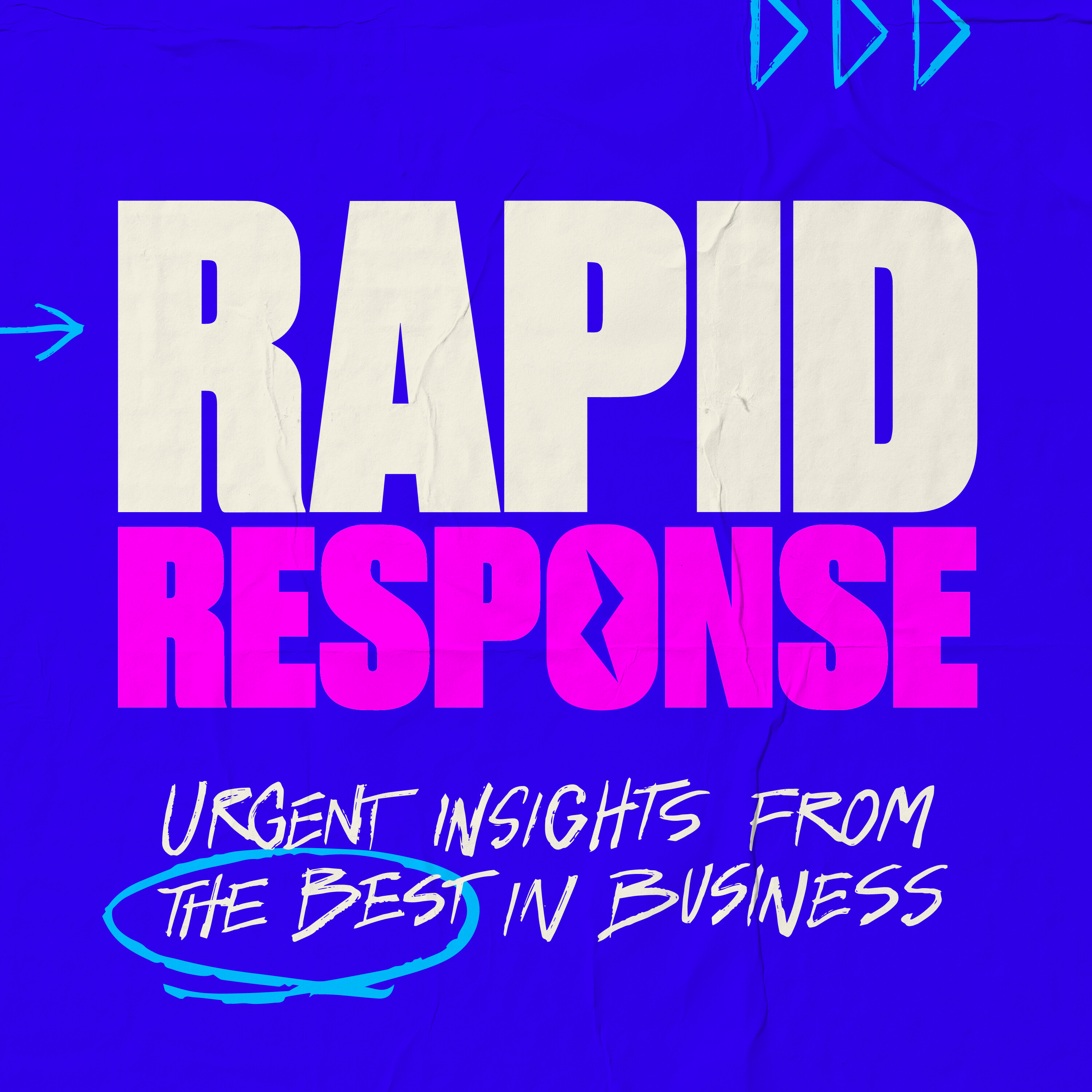
Key Takeaways
- Campus is reimagining the community college model with live online classes, support services, and affordable tuition covered by Pell grants for most students
- The goal is to improve graduation rates and help students transfer to 4-year universities or get good jobs without debt
- Campus pays professors double the typical adjunct rate while keeping costs low through efficient operations and larger class sizes
- The business model aligns student success with financial success - higher retention and graduation rates increase lifetime revenue per student
- Campus aims to help students identify their purpose and acquire skills to turn that into a career, not just provide credentials
- Investors like Sam Altman and Shaquille O'Neal are backing Campus because of its potential to fundamentally change higher education and society
Introduction
Tade Oyerinde founded Campus in 2022 as the first online community college in the US. With tuition of only $7,200 per year, Campus is attracting professors from top universities and achieving high graduation rates among a diverse student body. The goal is to reimagine community college for the post-COVID era and help more students get degrees or career skills without debt.
Topics Discussed
The Community College Model and Student Debt Crisis (02:36)
Tade explains that nearly half of undergrads start at community colleges because they are much less expensive than 4-year universities. When community colleges work well, students can transfer to a 4-year school after two years and still get the prestige and career benefits of a university degree at half the cost.
However, there are major problems with the current model:
- Low graduation rates - About 68% of community college students never graduate
- Student debt - The average dropout leaves with $5,700 in debt
- Inefficient credit transfer - Students lose about 1/3 of credits when transferring to 4-year schools
Tade saw an opportunity to rebuild the community college experience for the post-COVID world using technology and best practices.
The Campus Model (06:58)
Campus takes a different approach than traditional community colleges:
- Live online classes taught by professors from top universities
- All-inclusive tuition with no extra fees for textbooks, etc.
- Success coaches assigned to every student
- Free laptop and WiFi provided to students
- Mental health counseling available
- 86% of students pay $0 out-of-pocket due to Pell grant coverage
This model has led to much higher retention and graduation rates compared to typical community colleges.
Making the Economics Work (09:26)
Tade explains how Campus can afford to offer more services while keeping tuition low:
- Pay professors double the typical adjunct rate ($8,000 vs $4-5,000 per class)
- Use software for back-office operations to reduce administrative costs
- Larger average class sizes of about 100 students
- Focus on core classes rather than niche electives
The key insight is that higher retention and graduation rates increase lifetime revenue per student, allowing Campus to invest more in student success.
Live Online vs Asynchronous Classes (11:57)
Tade believes live online classes are superior to pre-recorded asynchronous courses:
- Provide more motivation, accountability and engagement for students
- Allow for social dynamics that motivate young students
- Technology has improved to enable high-quality live online experiences
- COVID forced professors and students to become comfortable with the format
Business Model Aligned with Student Success (13:17)
Tade explains how the Campus business model aligns financial success with student success:
- Higher retention and graduation rates increase lifetime revenue per student
- This allows Campus to invest more in support services
- Contrasts with traditional schools that lose revenue when students drop out
- Views students as customers receiving a service (skills, knowledge, credentials)
"It's one of the things I love about this model - students graduating is good for students, it's good for our country, it's good for society, and it's good for our bottom line."
Balancing Tech Company and College Cultures (17:36)
Tade discusses the challenge of being both a tech company and a college:
- Can't simply kick out problematic students like a tech platform would
- Need to take an ethical, nuanced approach to student issues
- But also can't be as inefficient as a typical college
- Uses titles like "Chancellor" instead of CEO to reflect this duality
Evolving Vision for Campus's Mission (18:48)
Tade shares how interactions with students have expanded his vision for Campus:
- Initially focused on providing college education and support
- Now sees the mission as helping students identify their purpose
- Aims to help students find the intersection of:
- What they're naturally gifted at
- What they're passionate about
- What the world will pay them to do
"Create the life that you've always dreamed of. That's what we do."
High-Profile Investors (20:57)
Tade discusses Campus's notable investors:
- Sam Altman (OpenAI)
- Invested quickly after meeting Tade
- Sees Campus as aligned with his vision for the future of education
- Concerned about AI disrupting entry-level knowledge work
- Shaquille O'Neal
- Passionate about education from personal experience
- Helping promote Campus
- Providing ideas on education
Advice on Fundraising (22:58)
Tade's key advice for founders on fundraising:
- Make your company so important that if it succeeds, the world fundamentally changes
- This makes fundraising easier despite high risk
- For Campus, success means "every American gets skills and knowledge with no debt"
- This would transform society - lower crime, higher life expectancy, better civic engagement
"If I win, is the world fundamentally different? And if not, then make your company more ambitious."
Conclusion
Campus represents an innovative approach to community college that leverages technology and best practices to improve student outcomes while keeping costs low. By aligning business incentives with student success, Campus has created a model that could potentially transform higher education and expand access to career-relevant skills. While still early, the company has attracted high-profile investors who see its potential to fundamentally change society by enabling more Americans to gain knowledge and skills without incurring debt. As traditional higher education faces increasing challenges, Campus offers a glimpse of how technology and entrepreneurial thinking could reshape the sector.

